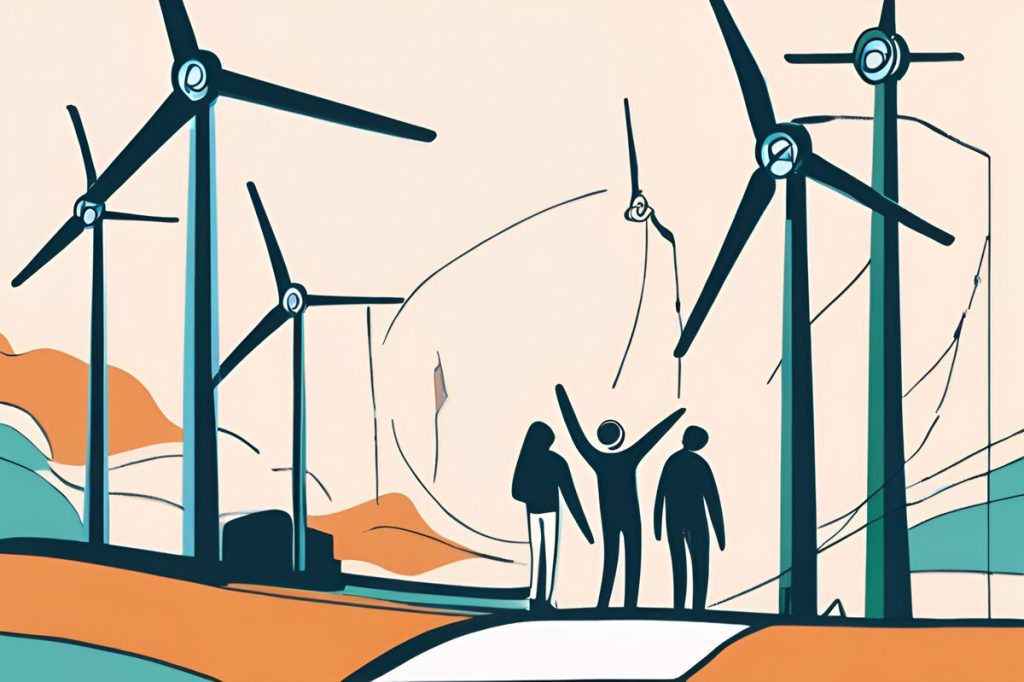Akel demands cheaper electricity in Cyprus by proposing a switch to natural gas, reducing VAT on electricity, taxing windfall profits, promoting renewable energy, and extending electricity subsidies for immediate relief. Stefanos Stefanou urges the government to take swift action to alleviate financial strain caused by escalating electricity costs and increase transparency in energy policy decisions.
What actions has Akel proposed to reduce electricity costs in Cyprus?
Akel proposes several actions to reduce electricity costs:
1. Transition to natural gas for cheaper, eco-friendly energy.
2. Reduce VAT on electricity from 19% to 9%.
3. Tax windfall profits of banks and energy companies to support affected consumers.
4. Promote renewable energy adoption through competitive tenders.
5. Extend electricity subsidies for immediate consumer relief.
Calls for Government Action on Energy Costs
In a strong push for economic relief, the opposition party Akel has stepped up its demands for the government to reduce electricity prices for both households and businesses. The escalating costs attributed to the use of heavy fuel oil in electricity generation has drawn significant concern. Acknowledging the financial strain, Akel’s leader Stefanos Stefanou has called for an urgent transition to natural gas, which is seen as a more cost-effective and environmentally friendly alternative.
Stefanou’s advocacy for the swift completion of the LNG terminal at Vasiliko reflects a broader strategy to address the €350 million spent on greenhouse gas emissions allowances last year. The leader urges transparency and accountability in the dealings with the Chinese-led consortium responsible for the terminal’s construction, which remains under scrutiny.
Proposals for Economic Relief
Akel has not only criticized the current administration’s approach to energy policy but also offered concrete proposals aimed at providing financial relief. One such measure includes a reduction in the VAT on electricity from 19% to 9%, a move previously blocked despite parliamentary support. By leveraging increased state revenues from fuel taxes, Stefanou believes that the government is well-positioned to afford such tax cuts.
The communist party also advocates for a tax on the windfall profits of banks and energy companies. The revenue from this tax would then be distributed back to the public, targeting those most affected by high energy costs. With the ‘energy poverty’ index in Cyprus surpassing the EU average, these measures are seen as crucial steps in addressing the growing economic challenges faced by Cypriots.
Promoting Renewable Energy Sources
In addition to financial measures, Akel places a strong emphasis on the adoption of renewable energy through competitive tenders. Stefanou points to international examples where such practices have successfully reduced electricity costs. The party believes that with political will, which has been admittedly lacking, these initiatives could be quickly implemented to the benefit of the consumer.
The call to prioritize renewables aligns with a global trend towards cleaner energy sources, as countries seek to balance economic growth with sustainability. By following this model, Cyprus could mitigate its reliance on imported fuels and foster a more resilient and independent energy sector.
Extension of Electricity Subsidies
Finally, the Akel leader has expressed the necessity for extending the electricity subsidies which are due to expire. This extension would serve as a buffer for consumers against the current high prices, providing immediate financial relief while longer-term solutions are put in place. The subsidies are part of a wider suite of interventions proposed by Akel to combat the rising cost of living and ensure that all citizens have access to affordable utilities.
The multifaceted approach outlined by Stefanou underscores a clear message from Akel: decisive actions are required to alleviate the energy cost pressures on Cypriot households and businesses. With the right policies and swift action, there is potential to not only reduce the financial burden on residents but also steer Cyprus towards a more sustainable energy future.
What actions has Akel proposed to reduce electricity costs in Cyprus?
Akel has proposed several actions to reduce electricity costs in Cyprus:
1. Transition to natural gas for cheaper, eco-friendly energy.
2. Reduce VAT on electricity from 19% to 9%.
3. Tax windfall profits of banks and energy companies to support affected consumers.
4. Promote renewable energy adoption through competitive tenders.
5. Extend electricity subsidies for immediate consumer relief.
Why is there a push for economic relief in Cyprus regarding electricity costs?
The escalating costs attributed to the use of heavy fuel oil in electricity generation has caused significant concern in Cyprus, leading to a push for economic relief. Akel has advocated for the government to take action to reduce electricity prices for both households and businesses to alleviate financial strain.
What is the importance of promoting renewable energy sources?
Akel places a strong emphasis on the adoption of renewable energy through competitive tenders as a way to reduce electricity costs and promote sustainability. By shifting towards renewable energy sources, Cyprus can mitigate its reliance on imported fuels and build a more resilient and independent energy sector.
Why is the extension of electricity subsidies important according to Akel?
Akel has emphasized the importance of extending electricity subsidies in Cyprus to provide immediate relief for consumers against high electricity prices. These subsidies serve as a buffer for residents while longer-term solutions are put in place to combat the rising cost of living and ensure access to affordable utilities for all citizens.

